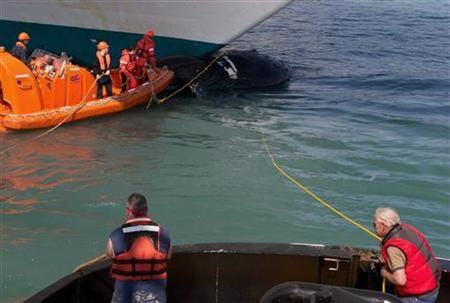No ‘Dead Zones’ found after BP oil spill

No hypoxic or ‘dead zones’ were found or expected in the Gulf of Mexico areas contaminated by BP Plc’s oil spill, a report by U.S. federal agencies showed.
According to the report, levels of dissolved oxygen have dropped by about 20 percent from their long-term average in the Gulf of Mexico areas where scientists reported the presence of subsurface oil, but not low enough to create ‘dead zones.’
Hypoxia is a condition in which oxygen levels drop so low that fish and other animals are stressed or killed. Dead zones are defined in coastal waters as areas in which dissolved oxygen concentrations are below 2 mg/L or parts per million.
The lowest dissolved oxygen measured was 3.5 parts per million, which is above hypoxic levels, the report said, adding that decreased, but stabilized levels of dissolved oxygen were found in Gulf areas with subsurface oil.
The number of ‘dead zones’ in U.S. coastal waters have increased nearly 30-fold since 1960, threatening ecosystems and fisheries nationwide and potentially jeopardize billions of dollars in economic activity, a recent multiagency report said.
“While we saw a decrease in oxygen, we are not seeing a continued downward trend over time,” said Steve Murawski, NOAA’s Chief Scientist for Fisheries. “None of the dissolved oxygen readings have approached the levels associated with a dead zone and as the oil continues to diffuse and degrade, hypoxia becomes less of a threat.”
The study by scientists from these agencies showed that the light components of the oil are being rapidly degraded by microbes.
Data from 419 locations were analyzed over a three-month period for this report released by the National Oceanic and Atmospheric Administration (NOAA), the Environmental Protection Agency and the Office of Science and Technology Policy.
However, this report does not discuss the ecosystem effects of hydrocarbons released into the environment or specifically address about the rate of biodegradation of oil.
© Copyright IBTimes 2024. All rights reserved.




















